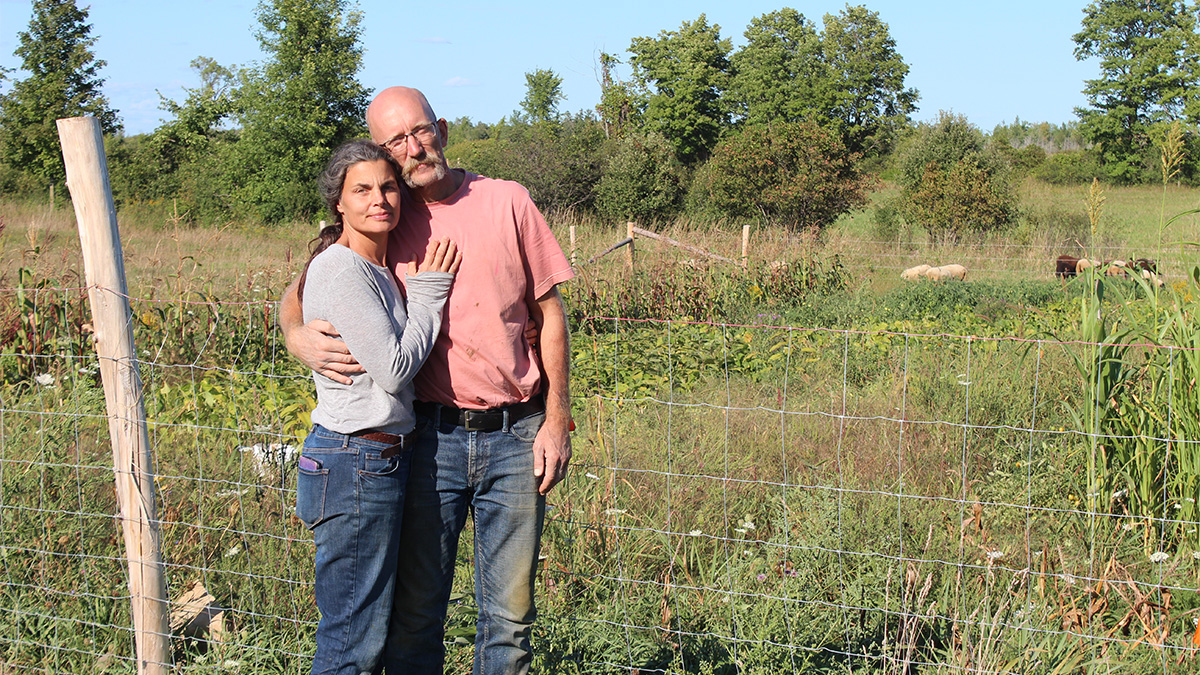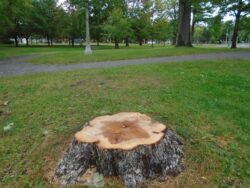The future of farming in Eastern Ontario may be in danger because the shrinking supply of land provincewide could trigger an exodus from the profession.
The National Farmers Union (NFU) told Capital Current that Canadian investment companies have been increasing their holdings of farmland and and then lobbying for this land to be opened for development.
According to the Census of Agriculture, Ontario has lost more than 200,000 hectares of farmland between 2016 and 2021.
In addition, the diminishing supply of land may be increasing farming costs. The 2022 Farmland Values Report by Farm Credit Canada showed that farmland values increased in Eastern Ontario by 14.9 per cent between January and December 2022. The cost of agricultural land ranged between $14,000 and $46,000 a hectare at the end of 2022.
Hilary Kerkvliet, appraiser for Farm Credit Canada, said that the data for 2023 farmland values in Eastern Ontario is not yet public, but she expects that values stayed the same or increased during the first half of 2023. Kerkvliet said Farm Credit Canada “acknowledges” rising farmland values pose a challenge for young farmers, new entrants in the industry and operations looking to expand.
“Spotty data” makes it hard to conclusively say that corporate land ownership is affecting farmland values, said University of Ottawa PhD candidate Christy Kelly-Bisson. However, they said they have seen a clear correlation between rising farmland prices and rising investor-ownership and corporate-ownership of farmland.
Corporate and investor owners may try to open the farmland for development, but some intend to use it for farming, by renting the land out to tenant farmers. According to the Census of Agriculture, 33.5 per cent of farmland in Canada was being rented or leased from others in 2021.
For those who opt to rent, there are other challenges.
“One of the little secrets from the past half-century in this country is that most farms have relied on the sale value of their farm for their retirement fund,” said Phil Mount, who shepherds sheep at Flat Earth Farm near Osgoode, with his partner Denise Bonin-Mount. "These tenant farmers won't have that land at the end of the day to then turn around and sell and get their retirement fund."
NFU says it believes tenant farming is unsustainable. High costs and insecure tenure of land pressures farmers into focusing on short-term profits rather than long-term farm sustainability, it says.
Mount said with land ownership out of reach and tenant farming posing problems for longevity, many people may leave the profession altogether. This could have negative consequences for Ontario: the province’s 2023 Local Food Report showed that local food industries employ one in 10 people and contributed more than $47 billion in gross domestic product from June 2022 to June 2023.
The beginnings of an exodus may already be materializing. Some new farmers in Eastern Ontario have decided to leave the province to dodge unwieldy prices. For instance, after completing their research on farmland ownership, Kelly-Bisson wanted to start a market garden near their suburban Ottawa home.
“I looked extensively, and I could never find anything that I could afford,” Kelly-Bisson said. “I didn't want anything much, just like one acre and that's good enough for me to do a market garden. I was looking for something like that but was completely priced out of Eastern Ontario.”
Now living in Nova Scotia, Kelly-Bisson was able to open a garden, but they said that a part of them was sad to leave Ottawa.
Kelly-Bisson’s experience reflects the challenges many young farmers face. As young people are deterred from farming in Eastern Ontario, many existing farms are left without a succession plan, according to Mount.
“We've got to address this crisis right now because new and young farmers are not going to do the really hard work of farming once they realize that they simply are not going to be able to make ends meet and put away retirement funds,” Mount said.




